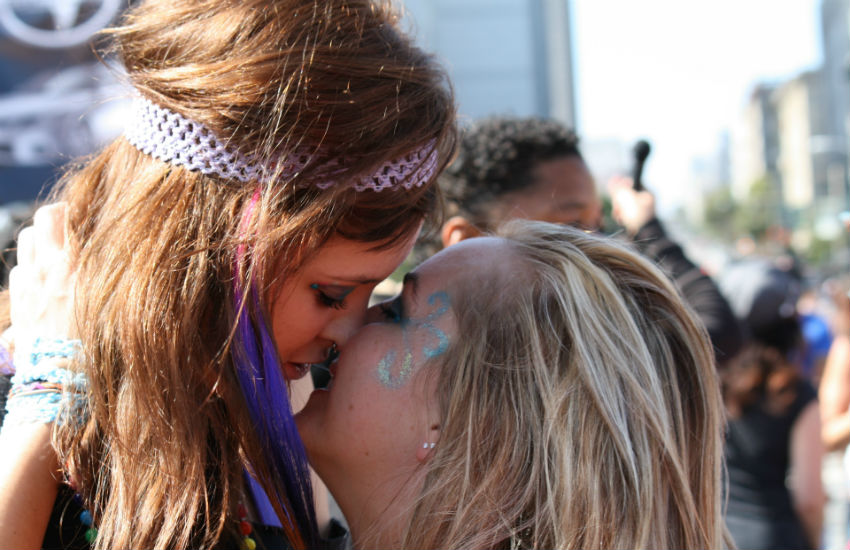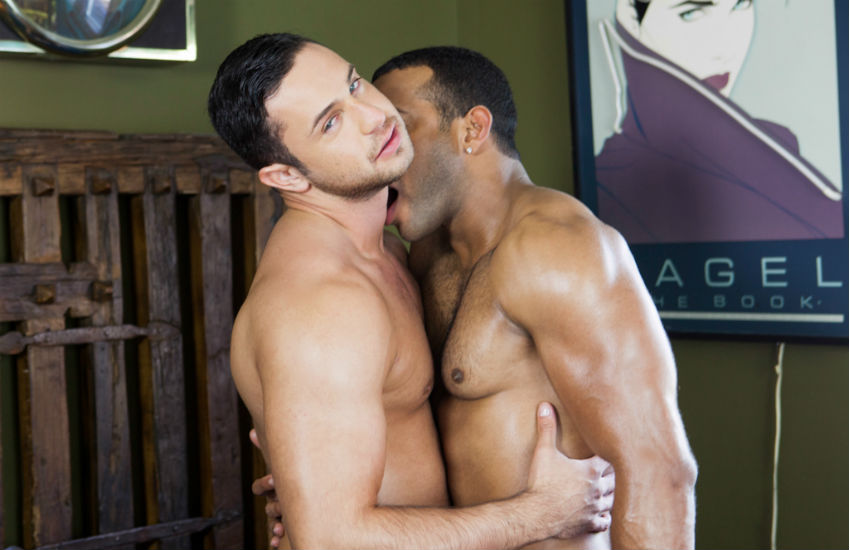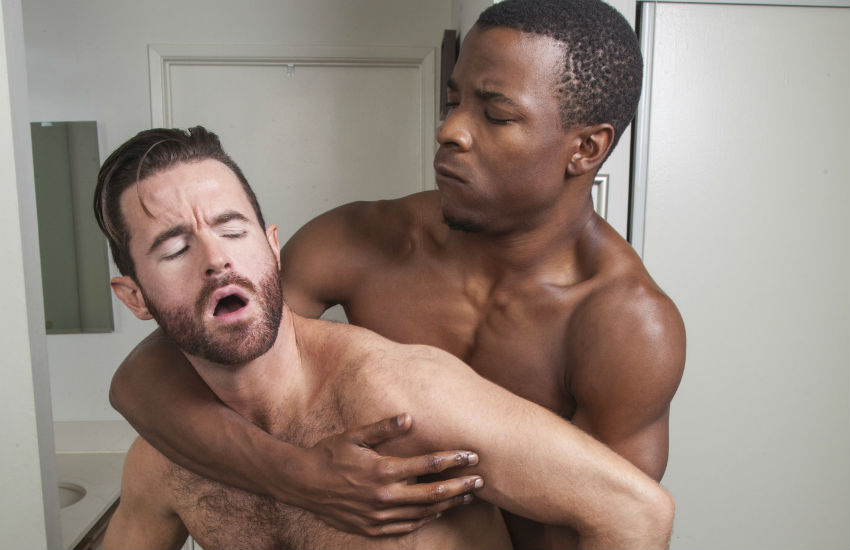‘My hookups go something like this,’ Joseph Bates – not his real name – explains. ‘We talk on Grindr, he comes over, we get undressed and do the business.
‘Then the guy would make small talk as we both got dressed and leave,’ he explains.
The 23-year-old guy from Somerset, UK says he feels dirty after he has sex and even has to change the sheets on his bed afterwards.
Joseph continues: ‘Then I shower, brush my teeth and drink something that has tons of flavour to get rid of any taste whatsoever.
‘I feel quite dirty and feel like I need to scrub myself clean,’ he added.
Photo: Randy Blue
Post-sex shame (also known as post-coital dysphoria or post-sex cognitive dissonance) can affect anyone. But it’s particularly prevalent within the LGBTI community.
It’s a feeling of sadness, anxiety, agitation or aggression after sex.
Stefan Walters is a sex and relationship therapist based in a Central London and says it’s ‘pretty common’. He trained as a systemic marriage and family therapist, which means he counsels a lot of couples.
He said he sees couples where one or both partner’s ‘sexual identity is not integrating fully with their identity.’
Stefan continued: ‘It’s also that sexual behaviors are somehow in conflict with the person’s other values, beliefs or perceptions of themselves.’
Why does post-sex shame happen?
Joseph lives in his family home but is not openly gay. He believes his father is homophobic and might kick him out of the house if he came out as gay.
But during his most recent hookup with a guy, something unexpected happened.
‘My little brother was home at the time,’ Joseph explained. ‘What you must know is that he normally sleeps till 12pm as he is normally awake all night.
‘So I did the stuff with a guy, but my brother got up halfway through. I had to rush it with the guy and then sneak him out of the door without my brother seeing him.
‘Because of this, I wasn’t able to do anything to get rid of the feeling so I felt off all day,’ he said.

Photo: Seen or Scene / Flickr
Sarah Jones –not her real name – also has a similar problem. She said she feels ‘weirdly embarrassed and ashamed’ whenever she has an orgasm during sex with her female partner.
She jokes: ‘I’ve decided the solution is just to have heaps of orgasms until I don’t feel weird about them anymore.’
So why does it happen?
Stefan said: ‘Humans are pretty complicated beings and things aren’t black and white. We can have many different beliefs about ourselves at the same time.
‘These sorts of feelings arise when one or more of those beliefs starts to be in conflict with another.
‘So we can believe something would be highly arousing at the time and then go ahead and experiment with that. But it may actually conflict with some other belief about ourselves,’ he said.
How does it come about?
Stefan says it’s a learnt behavior, often manifesting itself during adolescence.
‘A big part of adolescence is learning about your sexual identity and experimenting,’ he said. ‘As people are figuring out their sexual identities, they might have experiences which create feelings of discomfort, shock, guilt, sadness or anger.
He added: ‘This might not fit with perceptions you had of yourself. These might be values given to you by your family or society. And now as you’re experimenting and creating a different part of your identity, there can be a sense of dissonance that doesn’t connect.’

Photo: Randy Blue
Stefan says post-sex shame is intensified in the LGBTI community through homophobic messaging and ignorance. There’s also an element of internalized homophobia.
He explains: ‘Even if we come from quite a liberal or progressive family growing up, we still see what the media and the wider society is saying and it’s almost impossible not to have internalized those at some level.
‘So to then go on and realize as you’re going through your own adolescence, of course there might be that sense of dissonance. You might be thinking: “Society is saying this is wrong and yet here I am and this is what fits for me”.’
For Sarah, she believes there’s also an added element of internalized misogyny for same-sex attracted women.
She said: ‘Women are always told to suppress our sexual desires, so it feels kind of wrong giving in to them at times.’
During her longterm relationship, she believes the misinformation surrounding sex between women ‘belittled’ the whole experience for her in the bedroom.
She said it was ‘ingrained’ in her from a young age that ‘sex required a penis’. So when it came to have sex with her female partner, she was ‘unsure of what even counted as sex between two women.’
Sarah believes this contributed to the eventual break down of her relationship.
What can you do about it?
Joseph likens the feeling of post-sex shame to the feeling of getting drenched in the rain.
He said: ‘You know when you’ve been walking around and it rains and you get completely wet? Then you go inside somewhere and an hour later everything will feel dry but you yourself still feel wet. It’s like that.’
If you’re recognizing some of these traits in yourself, the best thing to do is to talk about it.
Stefan said: ‘Therapy tries to make sense of these conflicting aspects of ourselves and the conflicting values that we might have internalized.’
When asked what tips and tricks people might be able to do at home, Stefan said to try and think about when, how and why these feelings exist.
‘Start to think about what messages or beliefs might be causing this,’ he said. ‘Where might I have heard those things?’
Find a therapist who might be able to unpack why you’re experiencing post-sex shame.
—
Stefan Walters is a therapist based in Central London. You can find him at Harley Therapy.







